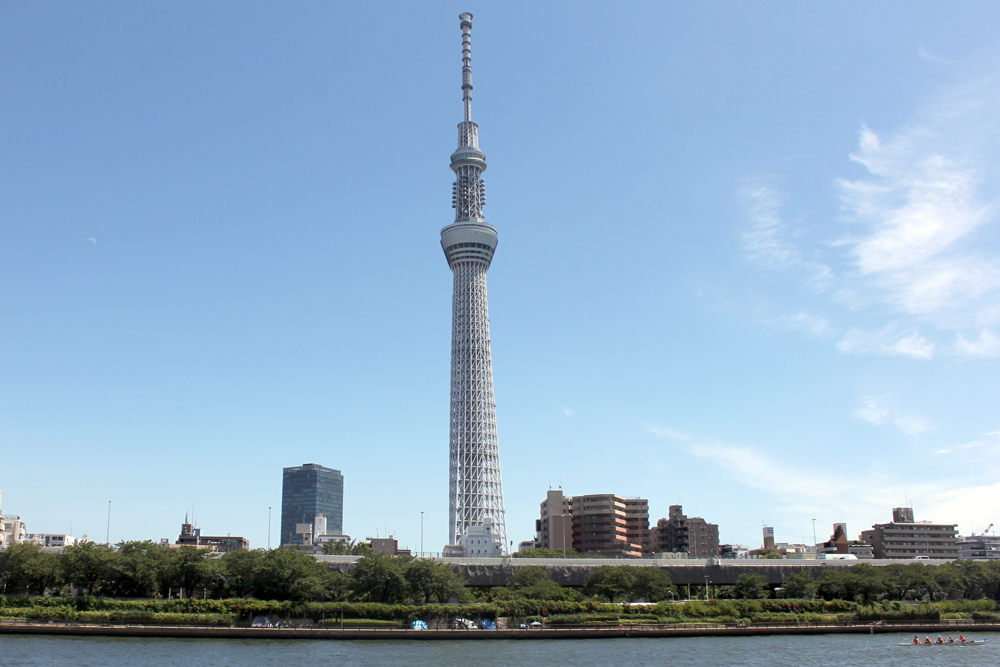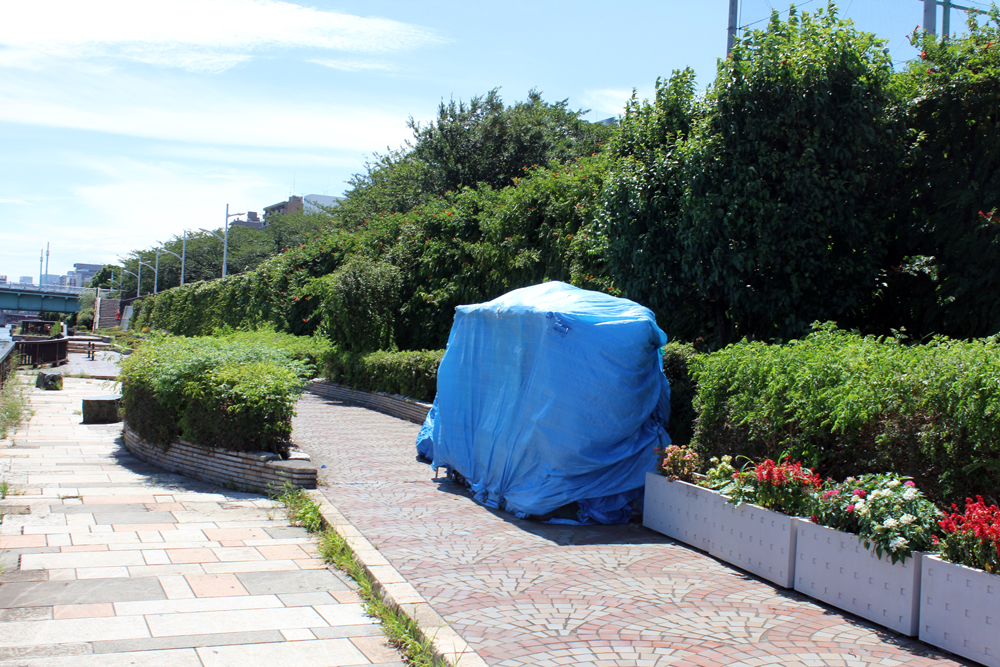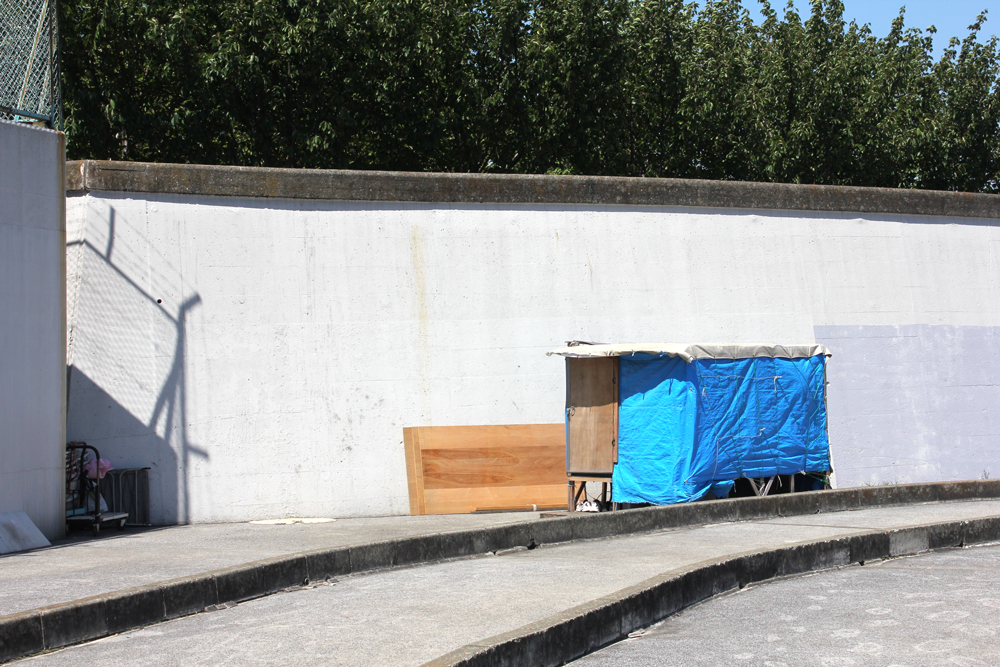東京ドリーム
Tokyo Dream
ロンドンやパリの人口率は過去65年以上にわたりほぼ一定である。その間、日本の中心となる東京は2倍に膨れ上がりその台頭は比較できない。人口、キャリア、文化、権力などすべての面で東京への一極集中は確立されてきた。TPP交渉を含めた国内政治にもその中央集権の影響は現れ、地方と大都市ではかなり大きな隔たりがある。断絶は関係性を生みだす。TPPミュージアムでは、北海道大学政治学教授、遠藤乾氏を招き、この状況がTPP議論にどれくらい影響を及ぼすのかについてうかがった。
Tokyo’s rise as the centre of Japan means that populations, careers, culture, power, all become re-entrenched in the centre. The effects of this urban concentration on national policies, including the negotiations around the Trans-Pacific Partnership, exposes the huge divisions between peripheries and the city. Disconnection marks the relationship. We spoke with Professor of Politics Endo Ken about how this affects the debate.
Our discussion was held July 1st, 2014 near Sapporo Station.
—————————-
東京ではTPPのメリットをどう捉えているのか?
都心部では、TPPにより格安の輸入品が市場に出回ることがメリットとして強調され、そのことがTPP推進派の意見として捉えられている。その一方で、地方への助成金の支払いを拒んでいる。他の地域に金をまわしたくない上、実際に毎年かなりの支出があるので、「地方はもっと独立してほしい」というばかりである。私は東京生まれで、これを全く誇りに思ってはいないが、これが東京人の考え方である。
その意見にはどれくらい信憑性があるのか?何か政治運動的な背景があるのか?
東京には小泉、安倍、菅、鳩山を始めとした世襲政治家が山ほどいるが、その政治活動は今始まったわけではなく、2代3代前から長期間に渡って東京の発展に加担してきた。あと、最近面白いデータを見つけたのだが、ロンドンやパリはこの65年間人口に変化がなく、国の総人口の15%で推移しているのに比べ、東京はその間人口が2倍に増え、国民総人口の15%から30%を占めるようになった。言ってみれば人口、富、情報、キャリアなど全てが東京に集中していることになる。しかし、パリやロンドンと比べてなぜそこまで集中しているのか?ここでのポイントは少子化問題だ。人口増減の境目は出生率2.1人と言われるが、シンガポールや韓国はこれを下回っており、東京はそれよりさらに低く1.09人である。日本全体の出生率自体も1.34人とかなり低いのに、東京への人口集中が日本全体の少子化に拍車をかけている。この状況を打開するには、消滅していく地方に産業を作り、人や経済の流れを変えていくことにある。
東京での生活環境や労働環境がこの人口問題に起因しているのか?
東京の若いカップルは多忙すぎて子作りする暇もない。昔は、少なくとも妻が家にいて今よりも少し時間に余裕があった。しかし現在は男も女も金を稼ぐために仕事に出る。その仕事も半分以上は非正規雇用である。つまり、現在は伝統的な日本の家族という姿が廃れてしまったのだ。
これはライフスタイルの変化に関係しているのか、それとも政府の政策の変化による影響なのか?
政策も大きな要因で、社会保障ネットワーク、生活保護と関連して、幼稚園や保育園への助成が削減された。子供を作ることは簡単だが、育てるのは容易ではない。日本での生活コストは非常に高く、東京では特に高くつき、時間もお金も設備もない。しかし、地方においては、収入や支出が都市部よりも少ないのでもっとゆとりある暮らしを組み立てることができるし、カップルは子育てに時間をつかえる。企業の良い例として、小松製作所という建設機器メーカーは、東京に集中させるのではなく、日本海側の小松市に会社の機能を分散させている。そのため、女性社員が子供を産んだ後でも職場に復帰し、子育てとキャリアの2足のワラジを履く事が可能になりやすい。実際に小松市にある支店では、東京本社よりも女性社員が子供を多く産むとのデータがある。このようにわかりやすいライフスタイルを企業は提案できるのだが、こういった話はめったに聞かない。
では、外国人労働者はこのような動きに対してどう対応しているのか?また彼らはある特定の場所や特定の仕事をしているだけなのか?
外国人の大多数を占める韓国、中国、インドネシア、フィリピンの人々をいれても、外国人人口率は日本全体人口の2%でしかない。日本各地に居住しているが、多くは関東の一部地域に集中している。北海道に関係する労働は、カキの殻をむいたり、酪農業の手伝いなど日本人の若者に人気のない手作業ばかりである。外国人研修制度は、35年前に日本の入国管理局にてつくられたカテゴリ―だが、公式な見解では会社が社員を訓練している事になっている。しかし実態は永久に訓練生であることで労働力不足を補っているにすぎない。すでに移民がいるにも関わらず、日本は移民を受け入れるべきかというディベートを今ごろ始めている!移民には3年間の期限付きで日本への滞在が許されてはいるが、様々な基本的人権や保障がないのが残念である。東北地区では漁業において移民を訓練労働力として頼っている。最近になりようやくフィリピンやインドネシアの看護士やケアワーカーを採用し始めている。高齢化社会の問題と若者の重労働離れからこのような実態が浮かび上がって来ている。
国内政治とTPPの関係はどうなっているのか?安倍政権が提唱している特別経済地域は特にTPPに関連していると思うのだが、基本的にそういう方向に舵をとっているのか?
そのとおりだが、問題はTPPの全貌が見えないことだ。かなりの秘密主義のため、このフレームの中で人々がどのような動きをとれば良いのかわからないのが現状である。例えば安倍政権は、外国人労働者の規制緩和を試みている。現在は景気も上向きつつあるが、それは建設業に大量の資金を投入するという、相も変わらぬ景気刺激対策によるものだ。リーマンショックによる景気後退の期間、特に若い建設労働者を大量解雇したことにより現在このセクターは非常に需要がある。また、東京オリンピック開催に向けて。インフラ整備やホテルの建設など溢れんばかりの投資があるため、雇用需要も多くなっている。さらに、従来は不足とされている介護者にも焦点があてられ、政府は移民としてではなく、期限付きのパッケージ化して外国人労働者の受け入れようとしている。7年の期限がすぎたら、退去させるというまったく非人道的な扱いになりかねない。わたしは外国人の受け入れにはわりと賛成なのだが、現政権は日和見的で穴埋めという功利主義でしか外国人を見ていない。その上、政府は外国人労働者の家族を連れてくる事に対して規制をかけたり、資格や安定した生活が日本で出来たらその権利を剥奪しようとしている。
TPPによる海外現地生産は何らかの影響をもたらすか?
日本企業が海外に生産拠点を儲け、そこで生産活動することの促進につながる。現地生産を行う事により、安い労働力の確保や海外市場の開拓、関税や輸入制限など貿易生涯を抜ける目的が存在する。実際これはもうすでに20、30年前から行われている事で、バブル期に加速され、円が値上がりした。しかし、日本企業が海外に拠点をもつことになったが、海外企業が日本に生産拠点を持つ事にはつながらなかった。今回はまたもう一度円が値上がりすることになるだろう。実際TPPは国内経済の話ではなく、企業の思惑も国内産業や経済からかなり遠いところで議論がなされているし、そのギャップが広がるばかりである。
この新自由主義的な考え方は、どのように保守や国家主義的イディオロギーに関係するのか。例えば新自由主義は安倍政権の動力となっていると思うのだが、その辺のバランスを理解するのがむずかしい。
国内の人口減少は国内市場の規模縮小を意味する。ということで、近隣諸国からの投資をもっと引き入れるための構造改革が急速に進められている。その意味で、企業は国際競争にさらされなければならない。
新自由主義における市場化の拡大とそれに伴う流動化は、生活への不安を人々に掻き立てる。自分たちが市場の道具でしかないと思うからだ。そして、待ってましたとばかりにナショナリズム、全体主義の概念がそこへつけ込んでくるようになっている。
日本の、北海道の未来を考えた時、具体的な変化はどんなものだと思いますか?
TPPによる変化というよりは、北海道の消滅が加速されるだろう。これは日本の縮小化と言う意味であるが。札幌はほぼ同じくらいの人口密度があり、過疎化が進む北海道の田舎からさらに人、才能、金を集中させる。東京都心の人々は気づいていないと思うが、TPPは少なくとも地元産業ベースの地域を襲う。それにより、ゴーストタウンが急増する。例えば、。老人ばかりで若者はいない。過去15年で人口は半減し、インフラも消えていっている。中学校、病院、郵便局も建物だけが残り、これらももうすぐなくなるだろう。これが、北海道の地方の姿である。先週行ったワークショップでこれらは明らかになった。検証の結果を細かく見ると、釧路、北見、函館、これらのまちは、若者をある程度ひきつけるが、新しく入ってくる以上に若者、特に女性が離れていき、2040年には現在よりも20代30代の女性が半減する。その理由は、第一に仕事がない、次に教育、それから、定収入がある男がいない、子育ての施設がないなどである。(東京は施設の数は多いが、それでも入れない!)しかし希望もある。帯広や中標津には若者が比較的多く滞在している。それは、農業をベースとした良い産業が成り立っていて、小麦を中心に、付加価値のつけたクッキーやチョコレートなどを生産しているからだ。ただし、TPPの影響を受けた場合、これらの町も危機的状況となる。しかしながら、なぜ東京だけが人を吸い寄せるのか?社会科学的に説明することは難しいが、大都市のプライドと地方への無関心からくるのだろう。東京は、人々の精神構造を歪めながら、すべてを集中させていく。
東京ライフはジャパニーズドリームを象徴するものなのか?
たしかに。少なくともアメリカでは広大なプール付きの家みたいなことを期待し要求できるが、日本の場合は夢は夢である事にとどまり生産性はない。これらの北海道の地方に関してのリサーチは、日本創成会議をベースとして調査された。この組織は日本を「極点社会」と称し、都心への一極集中が強まり、地方では人口が減り、病院や交通機関がなくなるなど、すべてが縮小していく方向へ進むだろうと予測した。
How does Tokyo understand the benefits of TPP?
They simply emphasize the importance of having cheaper imported goods, which translates as pro-TPP, and they don’t want to pay any subsidies to the peripheries. I was born in Tokyo, I know the Tokyo mind, and that isn’t the part I am proud of! They don’t want to pay for other places. They just say, “why don’t you have your own independent lives?” Because they pay a lot every year.
How developed is that opinion? Is there a political movement behind it?
There are a lot of second and third generation politicians in Tokyo; their whole lives are associated with the Tokyo urban rise: Koizumi, Abe, and even Kan and Hatoyama. I just came across some astounding data: the urban populations of London and Paris have been somewhat constant for the last 65 years, with about 15% of the entire national populations. Over the same 65 years, Tokyo has doubled, from 15% to 30%. So it’s just a huge concentration of everything, population, wealth, information, careers. But compared to London and Paris, why do we have to have that huge concentration? And let’s remember Tokyo has the birth rate of 1.09, which is lower than Singapore and South Korea. Japan’s national figures are 1.34, which is already very low. The stress point is somewhere around 2.1 or something, to achieve replacement and factoring in some deaths. So this imbalance is heading toward disaster, and to reverse this trend, we need to have some industries on the periphery and local sides—which they tend to destroy.
Is that because people work too hard in Tokyo?
Yes, that’s a principle reason, because young couples don’t have time to make babies. Before, at least the wife would have a little bit more time in the house. Now, both the man and woman need to go work to earn money, with more than half the jobs being of the unstable type. It’s not the traditional Japanese family, that is already passé.
Are you saying it’s more lifestyle related? Or does it have something to do with policy changes of government?
That’s also part of the reason, with implications for the social security net, welfare, less subsidies for kindergartens and nurseries. It’s easy to make a baby, but not as easy to raise one! The social cost is very high in Japan, and especially in Tokyo; you don’t have enough time, money or facilities.
How does the foreign workforce figure into these movements? Do they live in specific areas and do specific work?
Not very much. The entire foreign populations, including the largest groups of Koreans, Chinese, Indonesians, Filipinos, etc. is only 2%, maximum. They are spread around, but there are some concentrations in the Kanto area. The work that is relevant in Hokkaido is manual labour, for example in dairies or shelling oysters, which isn’t popular with young Japanese people. The “trainee” category was created by the Japanese immigration office some 35 years ago, so officially speaking, those companies are training those employees. But it’s permanent training; and in effect fills the hole of labour shortage. And they still manage to debate whether Japan is open for immigrants or not! When it’s happened already; however the time span is limited to 3 years. In the Tohoku area, you also have the same immigrant-as-trainee labour forces, as the fisheries sector heavily depends on these people; only recently they have had to rely on Filipino and Indonesian nursery workers and care workers. The huge aging problem is coupled with the fact that young people don’t want to engage in heavy, difficult work.
How do domestic policies relate to the TPP? Something like the special economic zones that Abe’s government is introducing feels quite sympathetic to the TPP. Is it just a general movement in that direction?
Yes, but the problem is we don’t know the contents of the TPP. It’s so secretive, and we don’t know what will happen with the movement of people within this framework, for example. Right now Abe is trying to introduce foreign workers, at the same time the economy is rather good, maybe because at the same time a lot of money is going into construction projects, in a very traditional stimulus strategy. During the recession and the “Lehman shock,” construction companies shelved a lot of workforce, especially younger guys. So there is no a lack of labour for this sector, which is at the same time expanding, increasing demand! We will have the Tokyo Olympics, and you can expect a lot of infrastructure investment, as well as hotels and spillover effects. Plus, the traditional topic like care workers. So they are trying to make a package that is not referred to as immigrants, but limited-time foreign workers, with something like 7 years whereupon we will kick them out. I am generally rather positive about foreigners, but the current government is so opportunistic and so utilitarian regarding these foreign workers, just to fill the whole. They aren’t treated as humans. Of course, the government is denying the right of these workers to bring their families, limiting the rights to stay after getting some license or decent, stable life here.
Would there be any effects from the TPP on outsourcing production?
I think it would accelerate the process of outsourcing Japanese industries. But that already happened over the past 20-30 years. It already accelerated during the bubble period and appreciation of the yen. This prompted the Japanese industries to go abroad. That trend wasn’t reversed. I think they anticipate another period of yen appreciation. It’s not a national economy anymore at all; the industries’ interests don’t line up with the national interests, and that gap has only widened.
How does this neoliberalization relate to the conservative, nationalist ideology, for example the one that is driving Abe’s government? It is hard to understand the balance.
The structural reforms are accelerating so that they would attract more investment from neighbouring countries, and the shrinking population means a shrinking domestic market. They need to be more competitive internationally. The growing marketization and the resulting fluidity make compatriots nervous about the meaning of their lives, as they are unavoidably treated as market instruments. Nationalism conveniently serves to fill the vacuum.
If you had to make some predictions for Japan or especially Hokkaido about visible changes, what would they be?
Though it’s not just because of TPP, I think TPP would accelerate the demise of Hokkaido, which is like a microcosm of Japan. Sapporo has had the same degree of concentration, taking people, talent, wealth, from the periphery of Hokkaido to the city, where you have fewer and fewer babies. TPP would hit the already weak local industrial bases; Tokyo people also don’t have a sense about this. That would result in many many ghost towns. If you visit those futuristic ghost towns nearby, for instance Suttsu, there are only old people, no young people. Over the past 15 years, the population has halved, and one by one the infrastructure disappears: The junior high, the hospital are gone, the post office will soon disappear, though the boxes may remain. That’s the future of Hokkaido’s local areas. We had a workshop on this a week ago. Going into the details, Kushiro, Kitami, Hakodate would be the losers; they may attract some of the youth, though they would lose far more young people, especially women, to the city. In those places, less than half of those women in their 20s and 30s would remain in those smaller cities in 2040. First reason is jobs; second is education; and then there are no men with decent incomes, no facilities for raising kids. (Even in Tokyo, there may be more of those places, but you can’t get in!) There is some hope—for instance Obihiro and Nakashibetsu have something that has kept the younger generations; we have to find out what. Obihiro has a good, sound industry based on agriculture: wheat and other things like related industries like chocolate and cookies—value added products. That may be hit by TPP, and if so that would be a disaster.
Why does Tokyo drain the whole country into it? It’s not easy to explain in social scientific terms. There is something to do with big city pride and disinterest in local areas. It distorts their mental structure. Everything is concentrated.
Does the Tokyo life represent something like the Japanese Dream?
But a dream that stays pipe-dreamy; it wouldn’t produce anything. At least in America you could demand expect a huge house with a swimming pool or something. The research we did on Hokkaido’s local areas was based done by the Nihon Sousei Kaigi (Japan Policy Council). A term they used to describe Japan is “black hole (kyokuten) society,” which means that as it moves toward concentration, everything shrinks.



